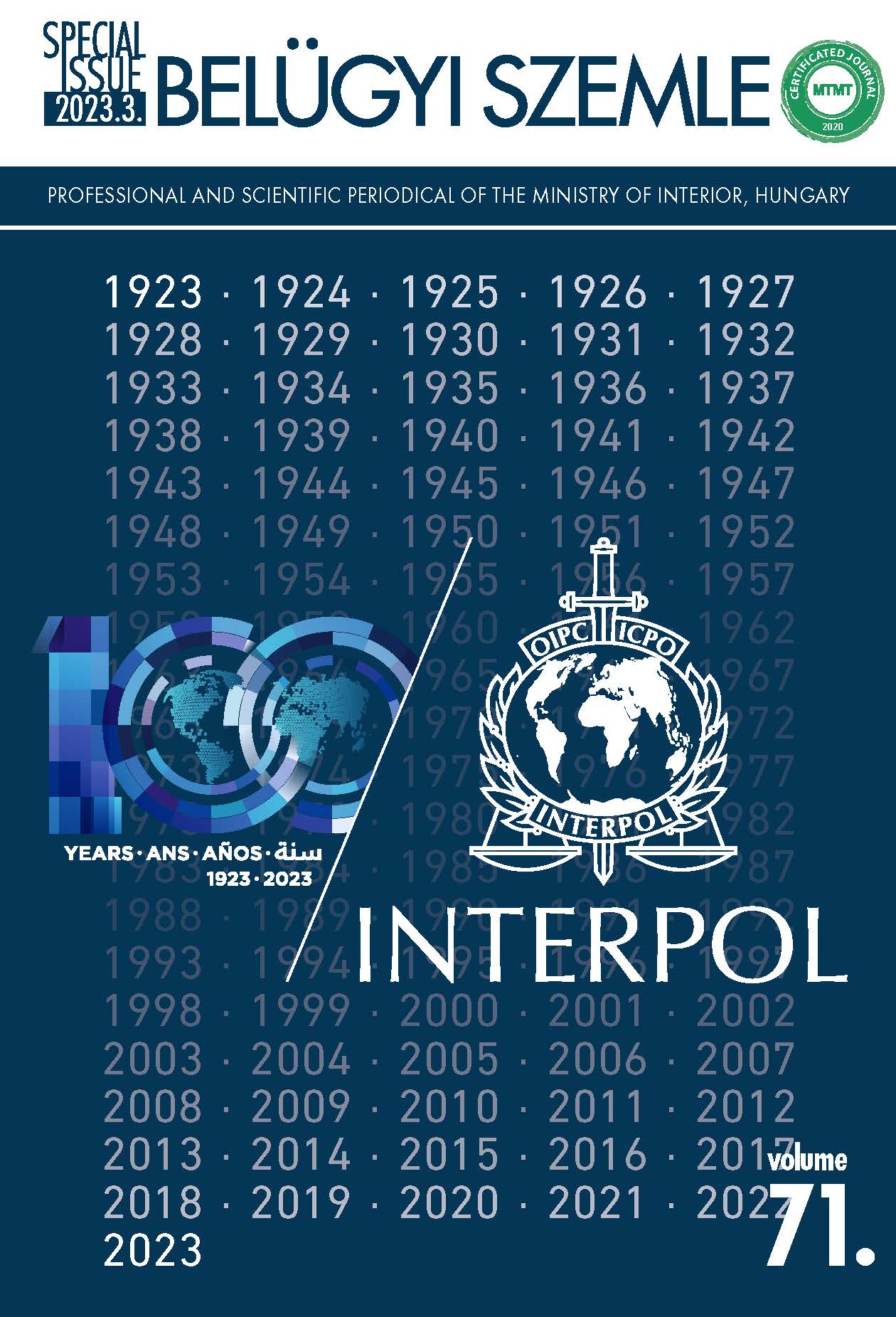Abstract
Aim: The aim of the study is to present, from the author’s own point of view and based on his personal experience, the most significant changes in INTERPOL over the last 30 years in Hungary.
Methodology: In addition to the relevant literature and legislation, the author draws on his own lived experience to describe the past three decades of the organization's ‘close-up view of history’.
Findings: Looking at the history of INTERPOL, it can be seen that, in addition to the spirit of internationalism, regionalism and regional/continental cooperation have always played a crucial role in practice. In the beginning, partly due to a lack of technical development, this was a restraining force in day-to-day operations. However, INTERPOL has taken advantage of the opportunities offered by technical-digital developments to recognise the regionality of the way in which smwaller entities are recognised and operate, thus contributing to the effectiveness of global INTERPOL. In Europe, this is represented by the INTERPOL European Commission. Likewise, an important means of enhancing effectiveness is INTERPOL’s cooperation with other regional law enforcement organisations – in the case of Europe, this is the close working relationship that has been established between INTERPOL and Europol. All this could not be achieved without the added value through the National Centre Bureaus of the Member States, which in the case of Hungary is the International Law Enforcement Cooperation Centre.
Value: As a result of this overview, the reader can see the structure of the domestic system, its links with the international organisation, the relevant EU agencies and the structure and role of the committees of strategic importance.
